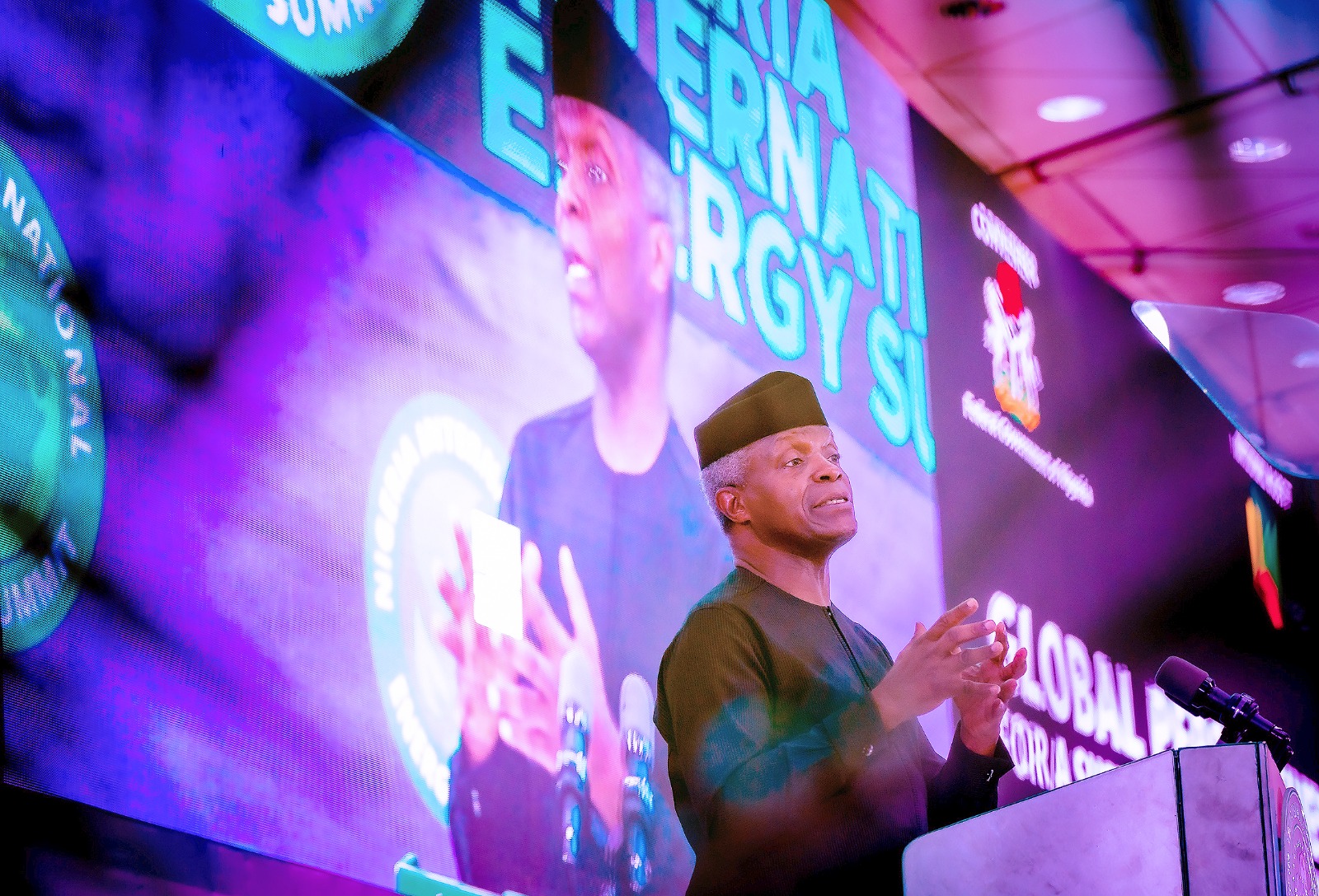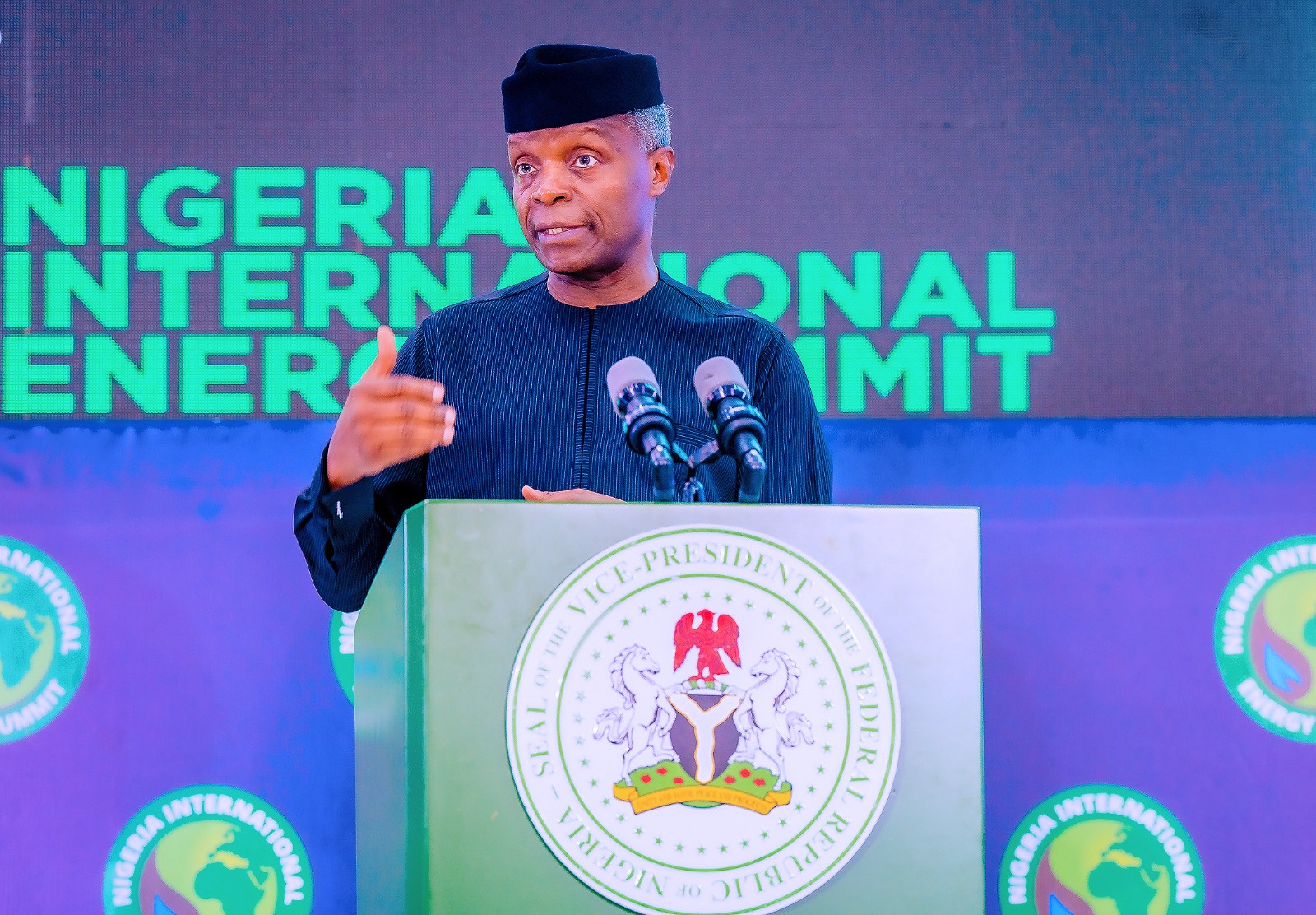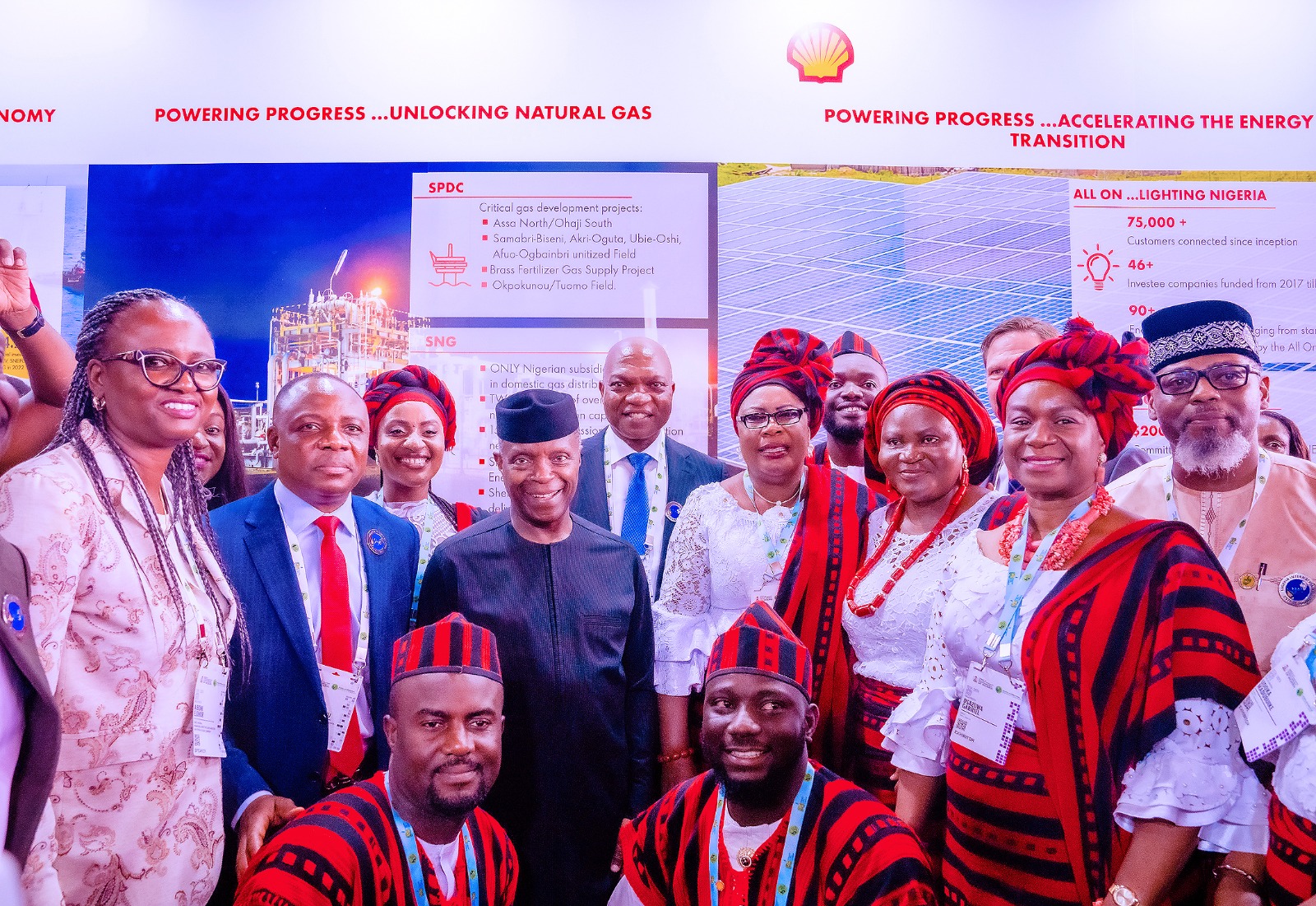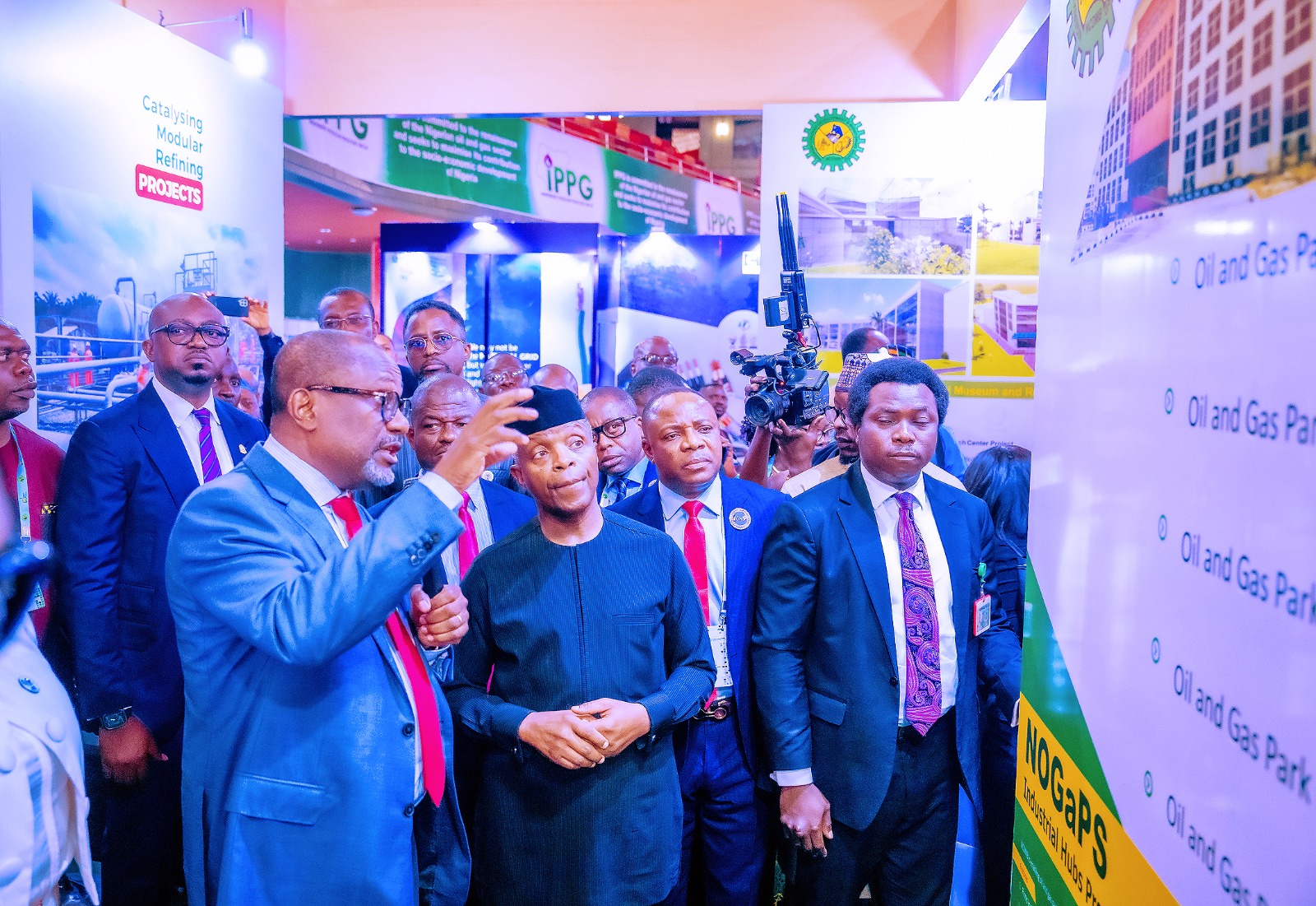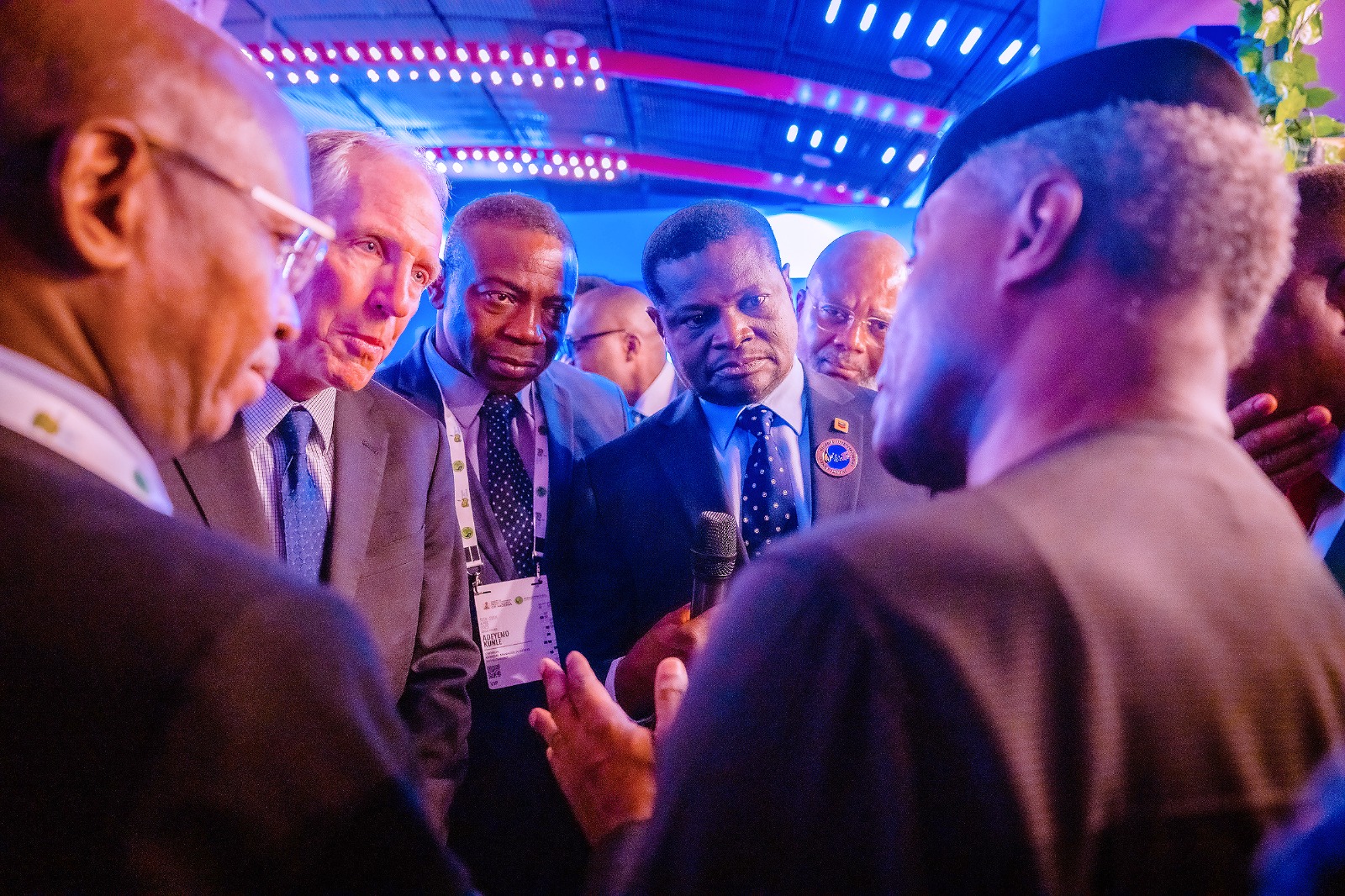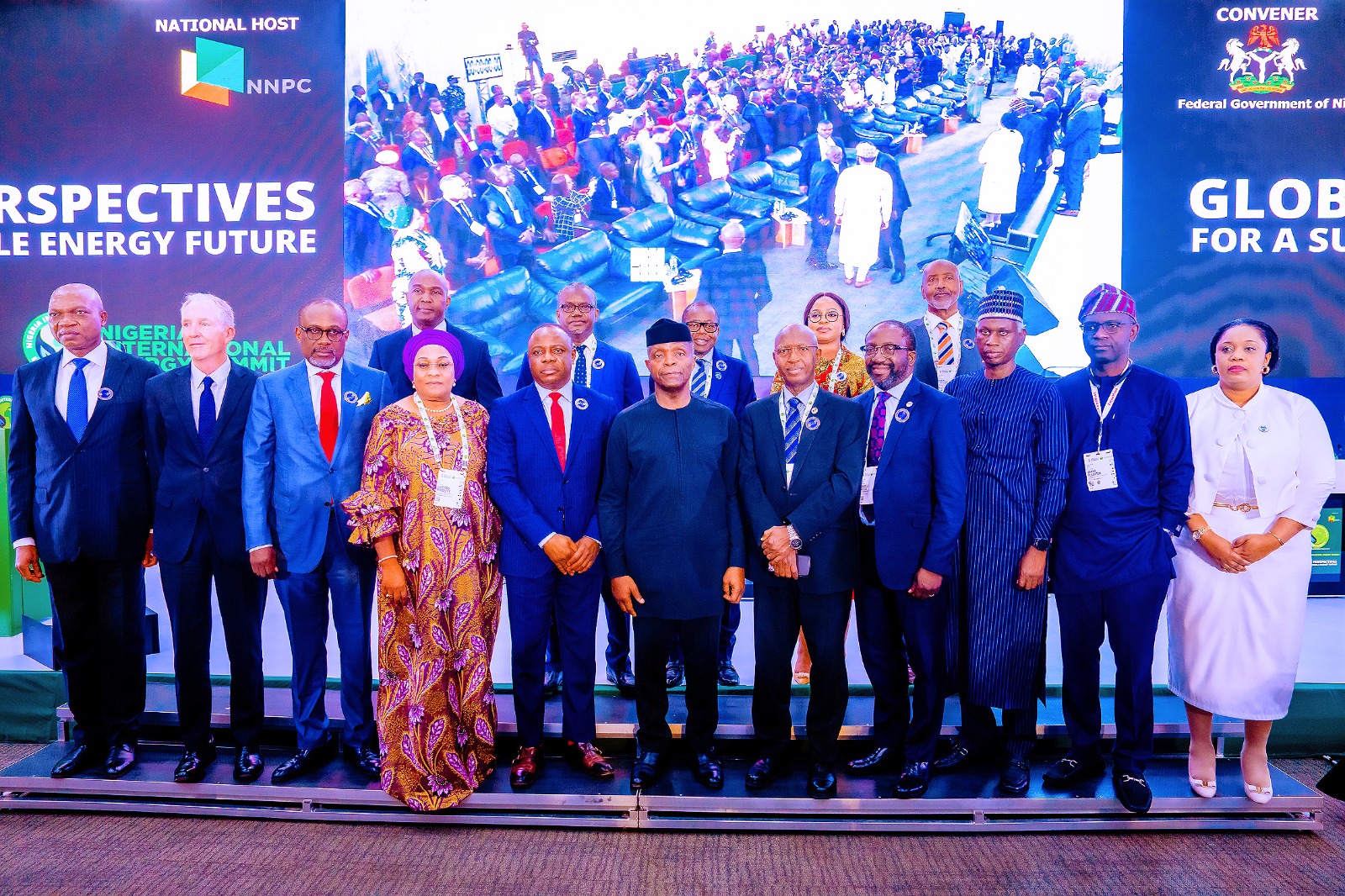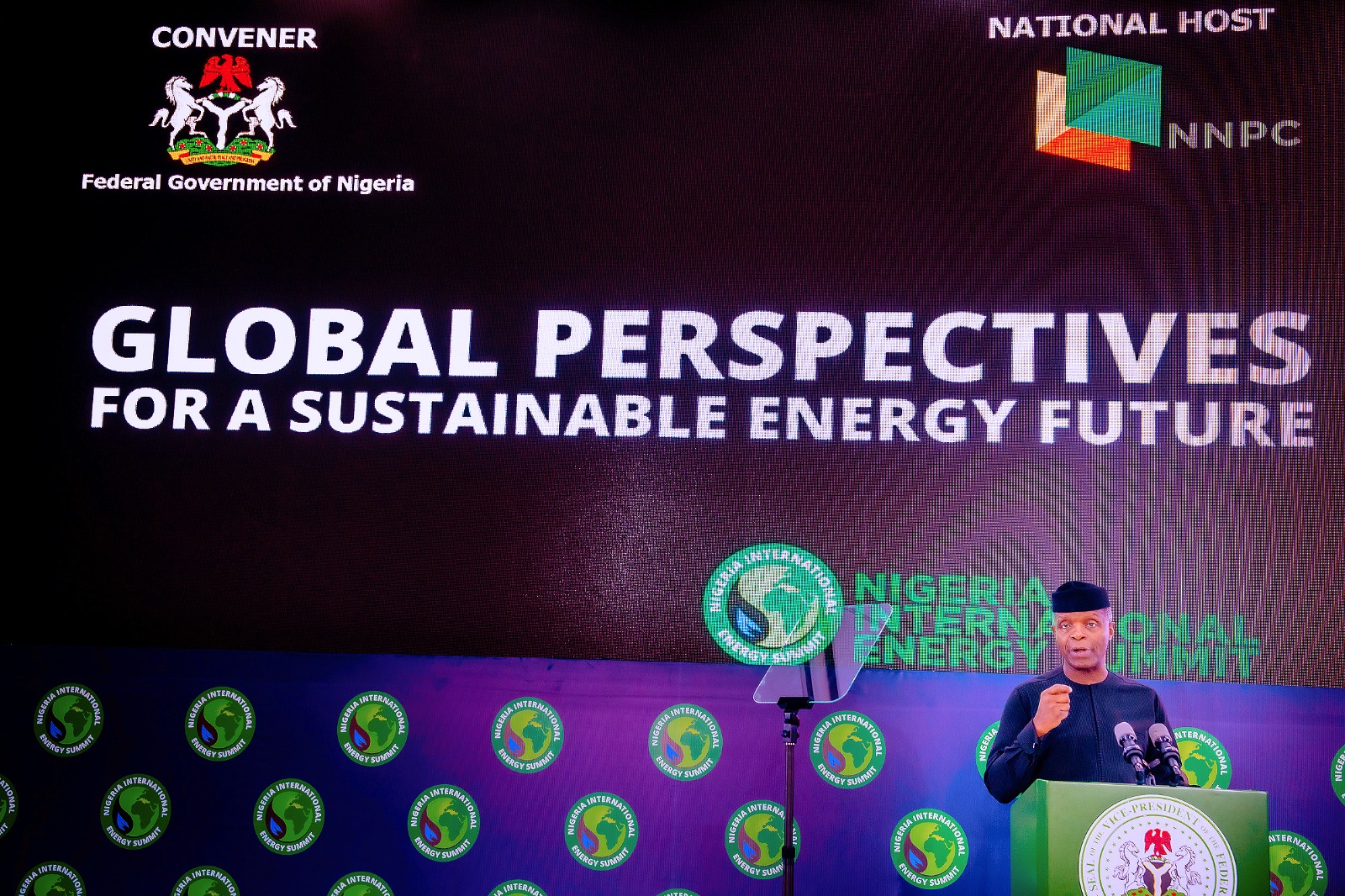Opening Exhibition Of The 6th Nigeria International Energy Summit Themed: Global Perspectives For A Sustainable Future
REMARKS BY HIS EXCELLENCY, PROF. YEMI OSINBAJO, SAN, GCON, VICE PRESIDENT OF THE FEDERAL REPUBLIC OF NIGERIA AT THE OPENING EXHIBITION OF THE 6TH NIGERIA INTERNATIONAL ENERGY SUMMIT THEMED: GLOBAL PERSPECTIVES FOR A SUSTAINABLE FUTURE, AT THE INTERNATIONAL CONFERENCE CENTRE, ABUJA ON THE 18TH OF APRIL, 2023
PROTOCOLS
It’s a great pleasure to join you at this year’s international energy summit. I am especially pleased that I have the more exciting role of opening the exhibition, walking around to hear and see current local and global developments in the sector.
The theme of this year’s summit is as ambitious as usual: “Global Perspectives for a Sustainable Future.” We can’t expect any less given both the calibre of representation at these summits and perhaps, more importantly, the sheer importance of the subject for the socio-economic future of our nation and our world.
In the past couple of years, I have had the privilege of chairing our government’s Energy transition Working group. In that capacity and working with a strong inter-ministerial team and several energy sector players, it has become increasingly clear to me that Nigeria has a crucial and strategic role in delivering the sustainable energy future that Africa and indeed the world, must have in the next few years.
Second is that it is the key sector actors such as those gathered in this room must do a lot of the heavy lifting to get us there. The truth is, no other sector of our economy is as crucial to the transition to a more sustainable future as the oil and gas sector as far as our own country is concerned.
But what is that future? Let me say first what it is not. It is not a future with Africa at the bottom of the food chain in the brave new world of sustainable energy. Certainly not.
But we must admit that today we have the largest number of individuals without access to power, and the largest number of people without access to clean cooking options, and we need rapid industrialisation to get millions of our people out of poverty, and we must do all without worsening the global warming situation. This is why some of us have argued that there is a need for some clarity as to where we are in the transition journey and what we need to be doing.
There are two existential crises for us Africans and our own country Nigeria; global warming and all its implication and the second is the energy poverty we have which results in millions of our people being extremely poor. There is no question at all for us in this part of the world, both must go simultaneously – we must think in terms of transition to renewable energy, and at the same time, access to power so that we can also have access to development for our people.
Many of us in this room would agree that gas must remain an important transition fuel. We cannot accept the position that gas projects should be defunded in order to enable faster progress towards the renewable transition we expect. Gas is crucial not because we have a huge amount of it, but because it is the only clean cooking option for us which is an important component of the entire clean energy agenda.
So, the future is not in Africa as a victim, it is in our nation and our continent driving the next stage of global economic progress by becoming the first truly green civilization in the world.
How can we achieve this? First by recognizing the opportunity early and intentionally developing all the potential around our natural resources including natural gas, solar and biofuels. We must in particular leverage our renewable energy potential, and work actively on green technologies, carbon removal and green manufacturing. We have a young resourceful workforce too that can enable that to happen very quickly.
And quite frankly, it is the energy sector working with the government that can muster the human and material resources to move the needle on this kind of ambition. There is no question in my mind that Africa is the place where we can sensibly and economically go ahead with green civilization. Nowhere else has that potential.
We are the lowest emitters today and have possibly some of the largest resources that will aid that journey, we can be more effective in developing our own agenda for a green future that will benefit the world much more than starting that journey elsewhere.
The greatest emitters in the world are the global north countries, so if you are going to do anything in terms of a green energy future, you should start from a low-emission base which is here in Africa and we have the natural resources to do so. If we focus on our strengths, we can certainly move very fast.
We have started well, our Energy Transition Plan is bold and innovative. It calls for the ramping up of solar deployment to about 5.3 gigawatts per year until 2060, the production of over 6 billion litres of biofuels annually to green, as it is, the transport sector on the path to e-mobility and the transition of at least 2 million Nigerian households to cleaner cooking fuels like Liquefied Petroleum Gas (LPG) and electricity every year.
We are also part of the important initiatives around Carbon Trading and I believe this holds important opportunities for our oil and gas sector.
I have in the past year been working with a dedicated international committee named the African Carbon Market Initiative. The point of the committee is to open up the tremendous potential for carbon trading opportunities in Africa. We also have the Nigeria Carbon Market Initiative and we think this is a win-win because it is important for the oil and gas sector because there are so many opportunities in the sector.
Also, barely two weeks ago, the Nigeria Sovereign Investment Authority, NSIA and Vitol, launched the CarbonVista Joint Venture – a fund that would invest in carbon emission reduction projects in Nigeria and promote the Nigerian carbon market initiative. The initial fund is for $50million and they have challenged the rest of the industry to put some more money into that pot so that we can achieve the objectives we have set for ourselves.
We have a long way to go, but we are well able to achieve all we have set for ourselves.
I think the private sector must also clearly articulate its own sustainable energy ambitions in alignment with the Energy Transition Plan. I think it is important for the private sector to sit down and present its own plan and show how it aligns with the Energy Transition Plan, and we need to act quickly.
In a few minutes, I will have the privilege of formally opening this year’s Energy Summit Exhibition and I look forward to seeing the new ideas and opportunities the sector has lined up.
Thank you.


